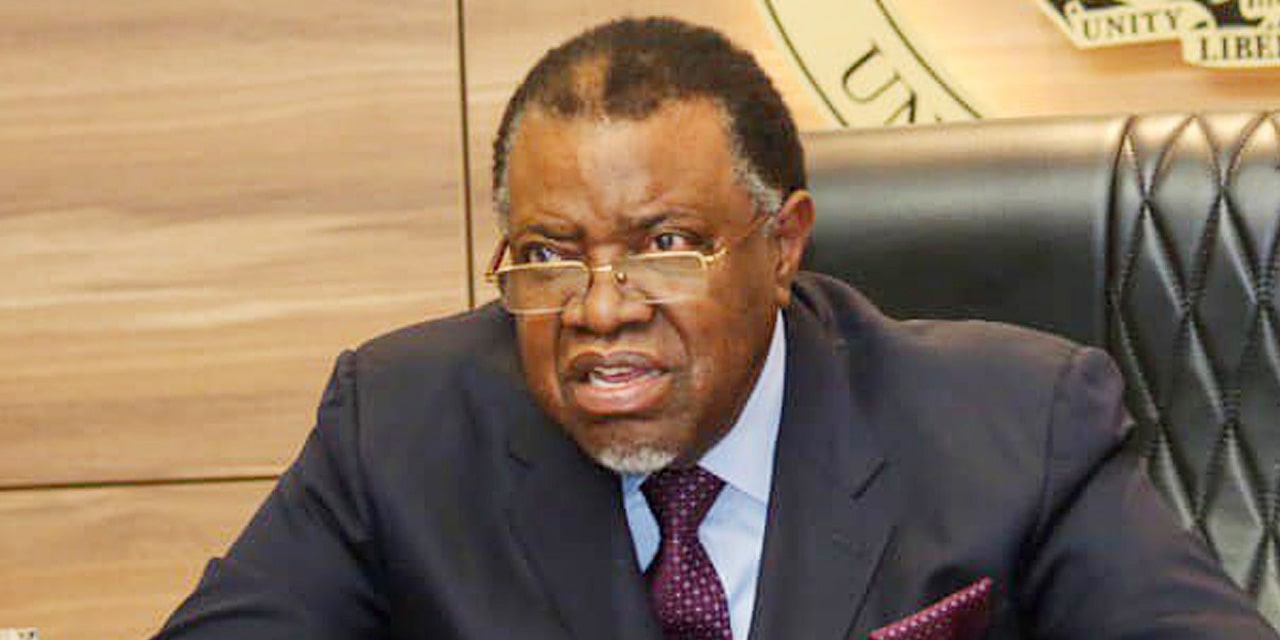Andrew Kathindi
The six-month state of emergency which was put in place in March, and lapses at midnight on Thursday 17 September, will not be extended, President Hage Geingob has announced.
This comes as it emerged that Geingob did not have the legal power to make an extension without making overtures to the opposition as the move will require parliamentary approval.
The President, however, said his government had assessed and weighed both the positive and negative impacts of the regulations and considered the additional capacity created during the six-month period, which led to the decision.
“This is a defining moment in our trajectory to combat COVID-19. The rate of transmission correlates directly to our personal conduct and is driven primarily by our movement and behavioral choices with regards to social and physical distancing, hygiene and commitment to wear facemasks to suppress the spread,” Geingob said.
Geingob revealed that government will, however, monitor the situation for a period of 14 days, to determine the way forward, under a new dispensation.
“When warranted, risk-appropriate measures will be introduced. As from 18 September 2020, new directives will be issued by the Minister of Health, in terms of the provisions of the Public and Environmental Act.”
He further said, “The possibility of a second wave of infections remains real and is a risk that we must manage, proactively. We are not out of the woods yet and not by a long shot. Now is the time to exercise maximum personal responsibility and vigilance.”
Under the new dispensation, gambling houses, restaurants and clubs would be allowed to operate until 10pm and sell alcohol onsite. Contact sport been is permitted and the Hosea Kutako International Airport has opened for business.
The travel restriction which was enforced in Windhoek, Okahandja and Rehoboth will also lapse; similarly, the curfew will go.
Attorney General Festus Bandeka announced that certain restrictions will remain in place to deal with COVID-19.
“Wearing of masks remains mandatory and the restrictions in place for public transportation will remain in place. Public gathering will remain at 50.”
Justice Minister, Yvonne Dausab argued that the Minister of Health and Social Services Kalumbi Shangula, was empowered by Section 29 of the Public and Environmental Act to make additional adjustments to the regulations even after the end of the state of emergency.
According to the Act, “if the President has declared a public health emergency as contemplated in section 28(1) or if the occurrence or threatened outbreak of a formidable epidemic disease necessitates it, the Minister may in writing issue directives or make regulations as he or she considers to be necessary or desirable to alleviate the public health emergency, occurrence or threatened outbreak of a formidable epidemic disease.”
Part of these actions could include, among others, the control of the movement to and from the affected areas, the closing of schools and the restriction of school attendance and other learning institutions and the closing of places of public entertainment, recreation or amusement, or where intoxicating liquor is sold.
“We are observing a consistent decline in the number of new Covid-19 cases. We are convinced that the measures we have taken since the first two index cases in Namibia have served us well. The responsibility for Covid-19 control has shifted from government to individuals, families and communities,” Shangula said.




